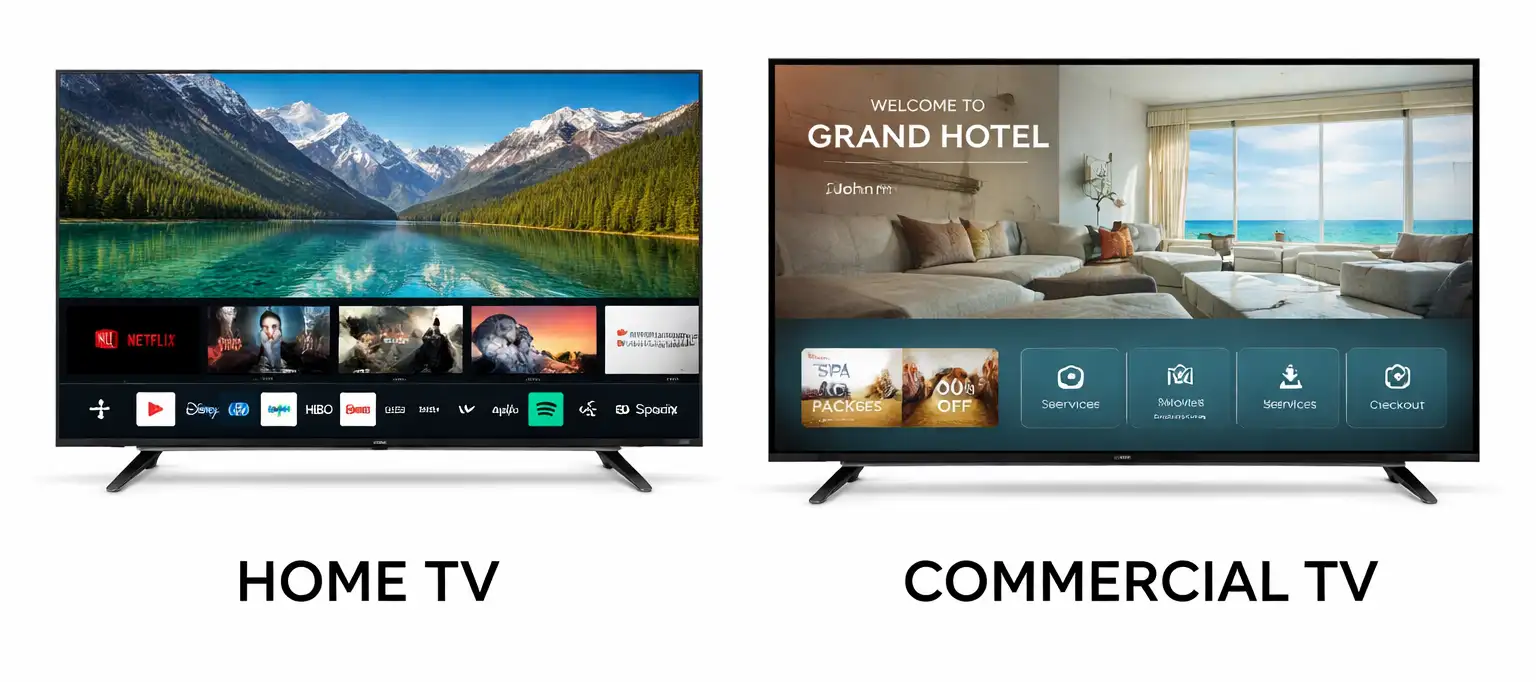TV manufacturers divide their products into two main groups: TVs for home use and commercial TVs. The commercial category is further subdivided into specific areas of application, such as TVs for hotels, hospitals, and offices. Below, we will look at these segments and their main differences.
Although commercial TVs share many technical characteristics with TVs for home use, they are equipped with special features adapted for public or business environments. These include enhanced security measures such as Kensington locks to prevent theft and password-protected settings that restrict the ability of unauthorized users to change the configuration. Commercial TVs can recognize specific remote controls to avoid interference from neighboring devices and often come with cloning settings for quick setup on multiple devices. In addition, commercial TVs are designed for long-term use.
Hotel TVs
Hotel TVs are equipped with features designed to improve guest service and simplify management for hotel staff. These TVs often display welcome messages, allow channel lists to be customized, and support guest device connectivity. Some models even integrate hotel services, allowing guests to access room service or information directly through the TV.
TVs for Hospitals
TVs for hospitals are similar to TVs for hotels, but their priority is patient comfort. This is a special model designed for medical facilities. It connects to the clinic’s internal system and allows staff to remotely control settings, channels, and content in patient rooms. This type of TV is protected from accidental changes by patients, can display service information such as procedure schedules, and can operate around the clock. In essence, it is not just a screen for watching programs, but part of the hospital’s digital infrastructure, providing both patient comfort and management convenience for staff.
Office TVs and Commercial Displays
Office TVs and commercial displays are typically used for professional presentations and collaboration. Many models offer interactive touch screens, built-in conferencing software, and advanced connectivity options to facilitate content sharing during meetings, such as support for connecting cameras. They typically do not have tuners. They are designed to operate for long periods of time. If displays are designed for use as advertising screens, they have high brightness as they are designed to work in high ambient light conditions. They can be used in places such as airports and shopping malls.
It is worth noting the cost and warranty of different TVs: commercial TVs are usually more expensive, but also come with a warranty that does not depend on the type of use, unlike home TVs, whose warranty is reduced to 3 months if they are used as commercial TVs.






